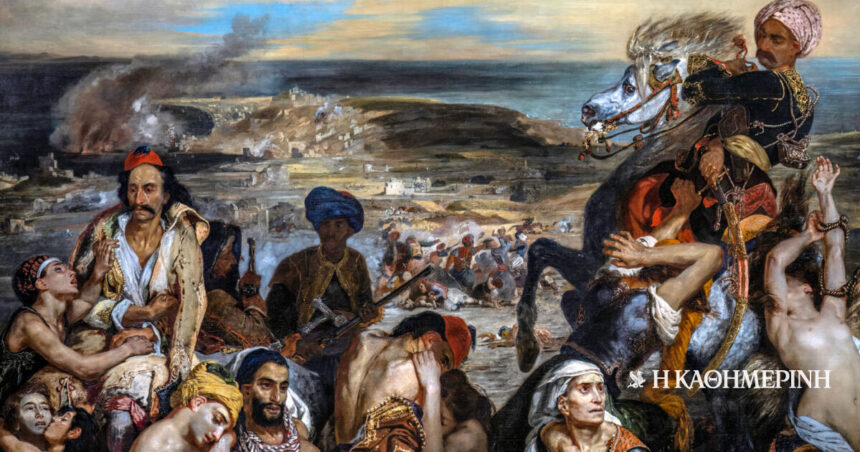At the beginning of 1822, the Ottomans attempted to overturn their association of maritime forces in Aegean Sea. Straight immediately after its declaration Revolution From the islanders, the Greek fleet dominated the Aegean, offering protection on the Greek coast of the mainland by the Ottomans, who were trying to strengthen the siege of the Peloponnese with men and the siege within the powerful castles of the Peloponnese. Starring in the Greek naval struggle were the Psarians, the Spetsians, the Hydraians and the Samians.
In spite of the revolutionary excitement of its inhabitants Chiosthe revolution was not declared on the island in 1821. Between the heads of Chios, the view that the proximity to the coast of Asia Minor, as well as the particular interest of the Ottoman Sultans for the island, would make it impossible for the struggle to be able to find the struggle, with the two -dimensional struggle. The success of the revolution in SamosBut, as well as the additional tax burdens imposed on Chians by the Commander Veetit Pasha, they prompted many to seek the start of the race immediately. In fact, they said that the leadership of the race in Chios had to be taken by Samios Lykourgos Logothetis.
The Samians’ landing in Chios surprised the Ottoman authorities of the island.
On March 10, 1822, he started from Samos, without the revolutionary government alerted, a small fleet consisting of 8 pounds and 30 saladsin order to provide assistance to the Chians, their uprising. The Samians’ landing in Chios surprised the Ottoman authorities of the island, which were immediately closed at the nearest fortified sites. Within a few days, Lykourgos abolished the old elderly of the island By replacing it with a new seven -member tax office, he placed firearms in key positions and raised the simple people in a revolution.
The Sultan’s reaction to the Chios revolution was immediate. Initially, He ordered the execution of the Chioti Practitioners Rodokanaki, Skylitsi and Ralliwho were in Constantinople as hostages of their relatives’ legitimacy, as well as 60 more traders who lived in the Ottoman capital. On March 25th, preparations for the sending of strong military forces to overthrow the revolution to the island and a few days later, the Ottoman fleet from Gallipoli sailed. Although the Psarians rushed to assist in the defense of Chios, Ottoman landing on the island was not possible to avoid.
When they refused to surrender to the monastery of St. Minas, Kara’s men Ali Pasha slaughtered almost every man they met.
On Good Thursday, March 30, 1822, the Admiral of the Ottoman fleet Kara Ali Pasha, after first bombing the city of Chios, landed about 7,000 soldiers on the island. Immediately the process of suppressing the revolutionary fires that had erupted in Chios began. Having been significantly strengthened by the strokes of the atrocities, who arrived from the Asia Minor coasts, now touching about 15,000 men, the forces of Kara Ali headed to the interior of the island, where the Greeks of Chios had sought refuge. When the Greeks, fighters and civilians who are estimated at about 3,000 souls, refused to surrender to the monastery of St. Minas, Karas Ali’s men raided by slaughter without compassion almost every man who met.
After the repression of the revolutionary fires, Kara Ali announced the his intention to grant Amnesty to the inhabitants of Chios. Showing confidence in the words of the Admiral, the Greek population handed over the weapons and returned to his homes. Followed then A great slaughter of Chios Christians, looting and arson of churches and their homes. It is estimated that about 2/3 of the population of Chios were either slaughtered or captured and then sold to the slaves of the East. Those who escaped the slaughter and captivity managed to escape to the Psaras, the Cyclades or the Mastichohoria of Chios, to which the Sultan gave amnesty.
The destruction of Chios shocked not only Hellenism but the whole of Europe. For months the big newspapers of European states In their articles they expressed their disgust for the slaughter of Chios, while the Philhellenes were trying to stir up European public opinion in order to assist in the struggle of the Greeks and the care of refugees.
Column: Myrto Katsigera, Vassilis Minakakis, Antigoni-Despina Poumenidou, Athanasios Syroplakis








